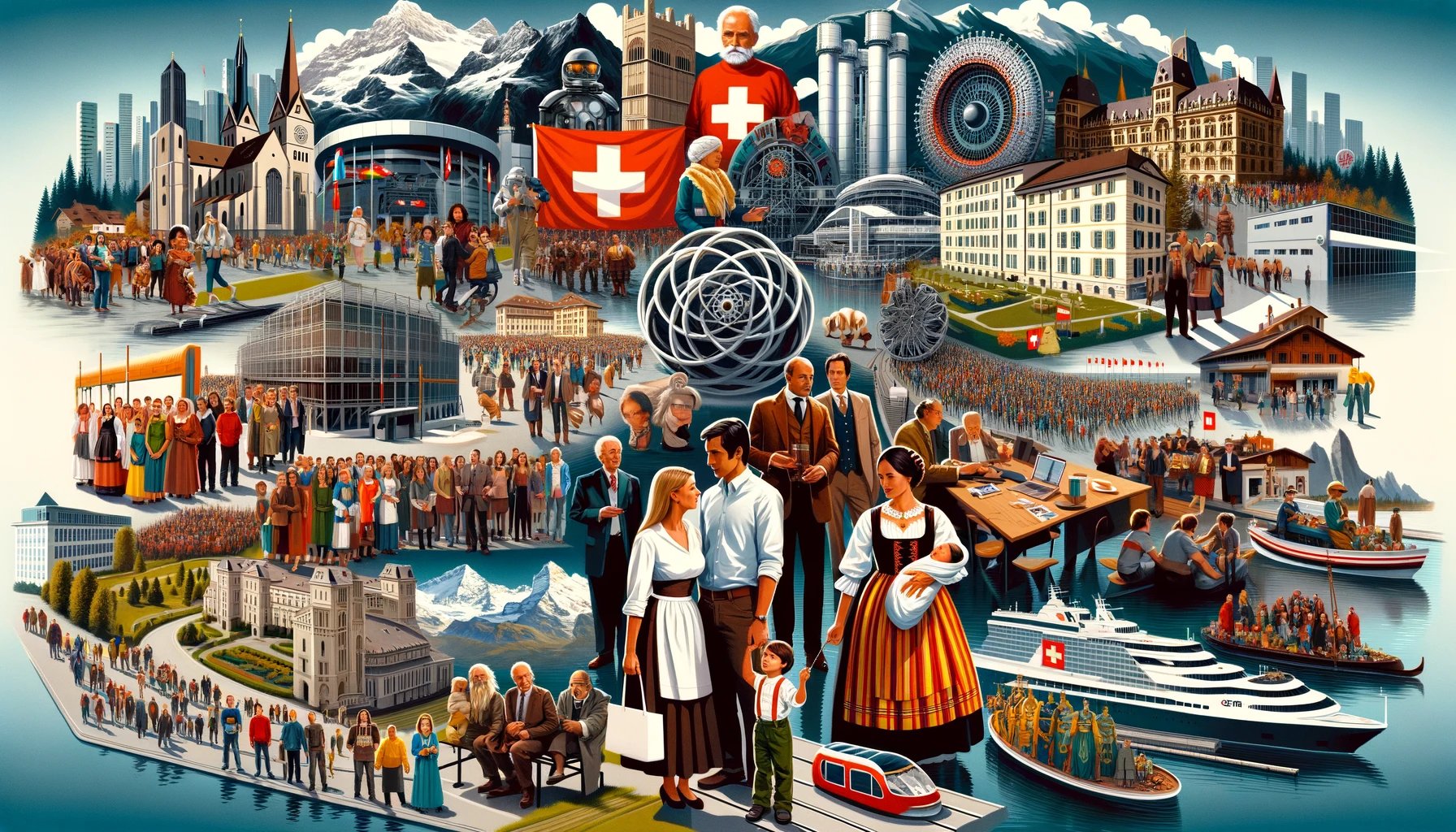21 Fascinating Facts About Switzerland

Switzerland is a small European country that punches above its weight. This Alpine nation of just 8.5 million residents has outsized influence in areas like finance, innovation, quality of life, and more.
In this article, we’ll highlight 21 fun facts about Switzerland’s history, geography, culture, education, traditions, and iconic industries. You’ll learn about:
- Demographics: from late marriage trends to a large foreign population
- Science and Academia: home to CERN and top-ranked universities
- Geography: a land of mountains, lakes, and rivers
- History: from early settlements to neutrality in the World Wars
- Governance: a confederation of diverse and autonomous cantons
- Culture: multilingual, regional diversity, living heritage
- Industries: makers of renowned watches, chocolate, cheese, and more
- Sports and Tradition: the Alpine roots of yodeling
Whether you’re considering Swiss emigration, planning a visit, or just curious – this list has something to intrigue all readers. Let’s dive in to 21 facts that make Switzerland unique.
Switzerland Facts
1. Late Marriages: The Swiss tend to marry late. The average marriage age for Swiss men is 31.8 and 29.5 for women. The average age for Swiss women to have their first child is 30.4 years, making them the oldest women in Europe to do so.
2. Home to CERN: The world’s leading particle physics laboratory, CERN, is located within Switzerland’s borders.
3. High Foreign Population: Switzerland has one of the highest proportions of internationals among all nations, about 24.6% in 2015. More than 80% of the foreigners living in Switzerland are from European countries.
4. Historical Significance: The early history of Switzerland begins with the earliest settlements up to the beginning of Habsburg rule, which in 1291 gave rise to the independence movement in the central cantons of Uri, Schwyz, and Unterwalden.
5. Geographical Diversity: Switzerland can be divided into three distinct geographical regions: the Alps, the Central Plateau, and the Jura. The Alps cover roughly 58% of the country, the Central Plateau around 31%, and the Jura 11%.
6. Cultural Diversity: Switzerland is a multilingual country with four national languages: German, French, Italian, and Romansh. Each canton has its unique cultural features, and the culture, customs, and traditions differ in different regions of the country.
7. Neutral in World Wars: Switzerland maintained its neutrality in both World War I and World War II. Even now, it prefers to stand off to the side in political affiliations and conflicts.
8. High-Quality Education: Switzerland takes pride in its high-quality education system and is home to some of the world’s top-ranked universities, like ETH Zurich and EPFL.
9. Swiss Alps: The Swiss Alps cover two-thirds of the country, but only a fraction of the population lives there. The sources of four of Switzerland’s main rivers – the Rhine, Rhone, Reuss, and Ticino – are in the Gotthard massif, in the heart of the Swiss Alps.
10. Swiss Confederacy: The territory of Central Switzerland, primarily the valley of Uri, gained great strategical importance with the opening of the Gotthard Pass in the 13th century. This became the nucleus of the Swiss Confederacy.
11. Swiss Cantons: The nation is divided into 26 cantons, each with a high degree of autonomy. The most populated canton is Zürich and the least populated is Appenzell Innerrhode.
12. Freshwater Reserves: Switzerland has 6% of Europe’s freshwater reserves. The country has around 1,500 lakes which, together with other bodies of water like streams and rivers, account for 4% of the country’s surface area.
13. Cultural Heritage: The cultural heritage of Switzerland is assembled in more than 600 museums, of which the Swiss people are rightly proud.
14. Culinary Delights: The Swiss culture also represents the culinary of Switzerland, which surely makes it a real-life heaven for foodies. One can taste a huge number of national dishes as well as the regional specialties regardless of the canton they are visiting.
15. Living Traditions: The Swiss keep old-aged traditions alive with pride. They perform folk music and dances, listen to swiss cowbells, wear ethnic dresses, and to an extent may even speak local dialects.
16. Swiss Alps: The Swiss Alps have played a major role in creating the history and cultural diversity of Switzerland.
17. Swiss Chocolate: Switzerland is famous for its high-quality chocolate, which is enjoyed by people all over the world.
18. Swiss Watches: Swiss watches are renowned for their precision and craftsmanship, and are considered a symbol of luxury and elegance.
19. Swiss Army Knives: The Swiss Army knife, a multi-tool pocketknife, is one of the most recognizable Swiss products, known for its versatility and quality.
20. Swiss Cheese: Switzerland is famous for its cheese, particularly Emmental, Gruyère, and Appenzeller. Swiss cheese is a key ingredient in many traditional Swiss dishes.
21. Yodeling: Yodeling, a form of singing that involves repeated changes of pitch during a single note, originated in the Swiss Alps. Although it’s not widespread, it’s a cherished tradition in some regions.